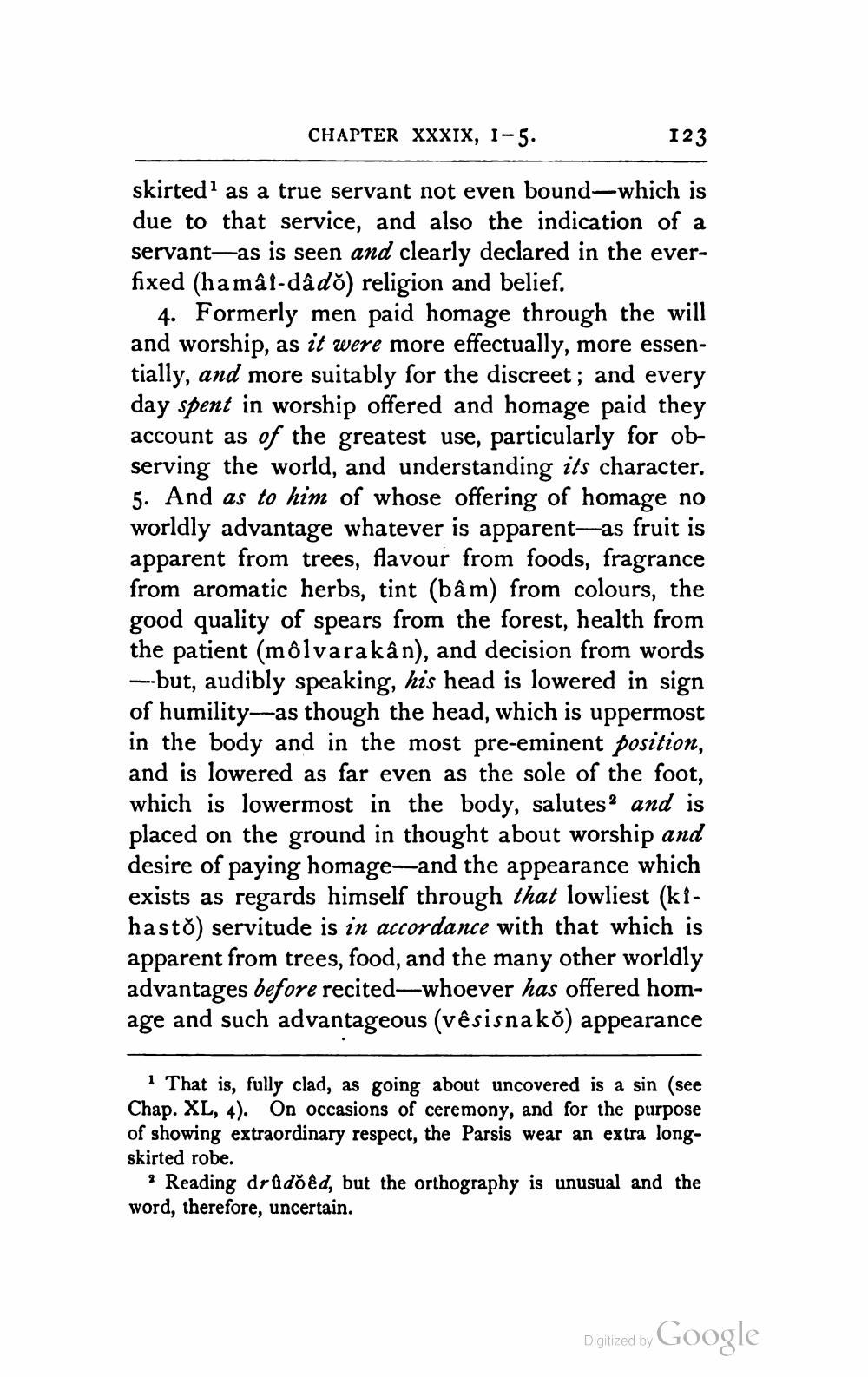________________
CHAPTER XXXIX, 1-5.
123
skirted as a true servant not even bound-which is due to that service, and also the indication of a servant-as is seen and clearly declared in the everfixed (ha mât-dâdo) religion and belief.
4. Formerly men paid homage through the will and worship, as it were more effectually, more essentially, and more suitably for the discreet; and every day spent in worship offered and homage paid they account as of the greatest use, particularly for observing the world, and understanding its character. 5. And as to him of whose offering of homage no worldly advantage whatever is apparent-as fruit is apparent from trees, flavour from foods, fragrance from aromatic herbs, tint (bâm) from colours, the good quality of spears from the forest, health from the patient (môlvarakân), and decision from words --but, audibly speaking, his head is lowered in sign of humility-as though the head, which is uppermost in the body and in the most pre-eminent position, and is lowered as far even as the sole of the foot, which is lowermost in the body, salutes2 and is placed on the ground in thought about worship and desire of paying homage-and the appearance which exists as regards himself through that lowliest (kihasto) servitude is in accordance with that which is apparent from trees, food, and the many other worldly advantages before recited—whoever has offered homage and such advantageous (vêsisnako) appearance
1 That is, fully clad, as going about uncovered is a sin (see Chap. XL, 4). On occasions of ceremony, and for the purpose of showing extraordinary respect, the Parsis wear an extra longskirted robe.
? Reading drůdoed, but the orthography is unusual and the word, therefore, uncertain.
Digitized by Google




